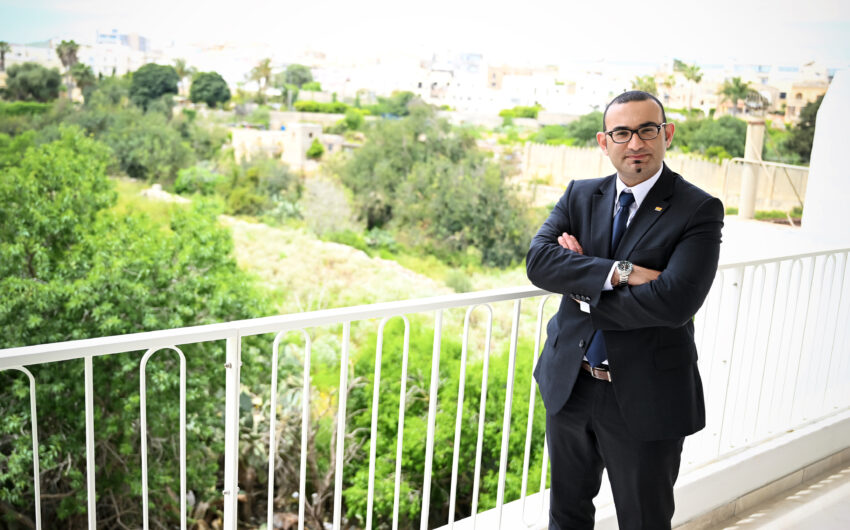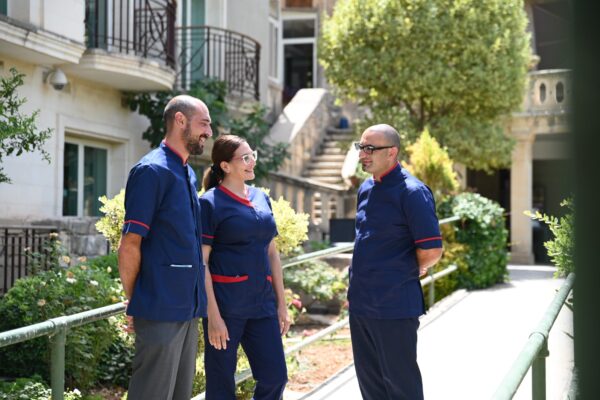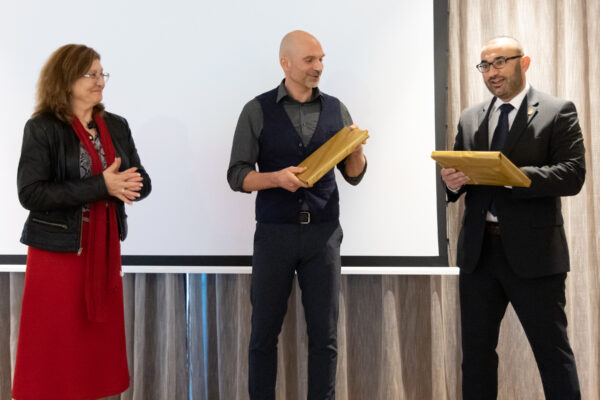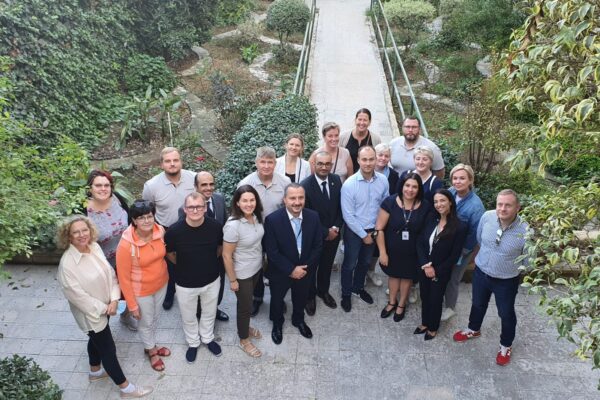
There is a cartoon image hanging in Noel Borg’s office in which he is depicted in full protection gear at the height of the Covid pandemic standing outside Zammit Clapp Residential Home, surrounded by Spiderman, Thor, the Incredible Hulk and a host of over superheroes.
“I am not the superhero. I am in my nursing uniform. The staff are the superheroes. They have always been. I am there, but my team are the heroes protecting the facility.”
It was an exceptional time when CareMalta had to temporarily shift to a medicalised model of care to keep their residents safe. Extraordinary measures for extraordinary circumstances. Putting his nursing cap back on, Noel had overseen the needs of residents at Zammit Clapp during CareMalta’s first outbreak. This was a first and from a residential facility, the home became more like an infectious disease ward.
But models of care for the elderly have evolved beyond the “old-fashioned” concept of hospitalisation as older adults themselves have changed.
“Our understanding of models of care in Malta have always been from the British model of nursing and care. Malta adapted that and made it work in old people’s homes. So much so that we still struggle to get out of that model.
“Then in 2013, when the government published the first National Strategic Policy for Active Ageing, we started moving towards differentiated models of care. Older adults don’t need medical models of care in their homes, they need integration and social participation. Their needs have changed.”
“If we want to engage older adults we need to ensure that whatever we do, the focus must be on the person,” says Noel, adding that the key aspects are respecting their dignity and ensuring quality of life without any limitations.
The second National Strategic Policy for Active Ageing published in 2021 also highlighted equity and equality.
“We believe in social integration where no distinction is made between people with different conditions and they are not labelled. A [residential] home is a community and just like any other home it consists of different people with different characteristics and that gives the sense of a family.”
Quality of life and dignity are the “strongest pillars” of CareMalta’s model of care, one that transforms the perceived limitations of old age into opportunities. Age shouldn’t be a limiting factor in a person’s enjoyment of life.
“We are trying to move towards person-centred individualised care planning, keeping in mind opportunities that are normally seen as limitations of older adults. It does not mean there are no limitations. This is not a positivist approach, rather the acknowledgement that when you set limits you have to be realistic. You cannot assume that just because a person is frail and stuck in bed there is no way of maximising his potential of enjoying himself.”
“I am quite an anti-ageist person. The elderly and society in general are ageist. Traditionally, we are not even oriented to foresee the needs of older adults. How can we expect people to live more independently in society when society does everything to the contrary of what should be done to maximise the individual’s function in society?”
The future of care is evolving to a complete model that looks at activities of daily living in totality within a social context.
“Older adults have this wealth of knowledge and if we were to adopt this in any model of care in a bottom-up approach, it’s how we can consolidate more where we’re going.”
When CareMalta was set up 30 years ago it had a “visionary” approach to care for the elderly. That tradition of ensuring a better way of taking care of people, Noel pointed out, is still “very much there”.
CareMalta was also a pioneer in the care for people with dementia. Noel explained that people with dementia faced many challenges in Malta and while the company had already done a lot in this field to improve dementia patients’ lives, “we need to keep pushing the bar further up… as far up as possible”.
“Stop taking the word dementia for granted. Dementia does not mean people forget. Dementia is a syndrome. In that individualised aspect of that syndrome people have needs and those needs have to be catered for properly. People do not stop being themselves because their behaviour changes. A person is a person till the end. It’s not easy, not even for the relatives. Everyone must be given the opportunity to express themselves. I am against restrictions. Maximising a patient’s potential would be the best way to mitigate this syndrome.”




